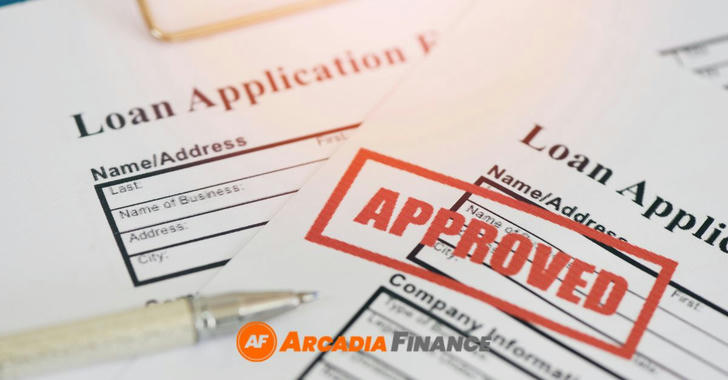Breaking Credit Barriers: Instant Emergency Loans in South Africa with Just Your ID
In a nation where over 30% of adults lack formal banking access and credit scores often dictate financial survival, South Africans facing emergencies—medical bills, school fees, or unexpected repairs—are frequently left stranded. Traditional lenders demand pay slips, collateral, and pristine credit histories, excluding millions. Now, a wave of inclusive financial solutions has emerged: emergency personal loans requiring nothing but a valid ID. These services bypass credit checks, income verification, and bureaucratic delays, offering lifelines within hours.

Who Needs These Loans? A Solution for the Overlooked Majority
From informal traders in Johannesburg’s bustling markets to gig workers in Cape Town’s suburbs, millions lack the paperwork demanded by banks. Consider Zinhle, a Durban mother whose child’s hospitalization coincided with her temporary job loss. With no savings or payslips, she turned to an ID-only loan, securing R8,000 in 90 minutes to cover medical costs. These products cater explicitly to:
Credit-invisible individuals: 44% of South Africans have no credit history.
Seasonal or informal workers: Taxi drivers, street vendors, and freelancers with irregular income.
Urgent cash seekers: Those needing funds faster than traditional banks’ 5–7-day processing.
A recent IMF report highlights that 62% of Sub-Saharan emergency borrowers prioritize speed over interest rates—a trend mirrored in South Africa’s growing demand for instant liquidity.
The Unmatched Advantages: Why ID-Only Loans Dominate
Traditional loans trap applicants in a Catch-22: proving financial stability while in crisis. ID-based lenders eliminate this paradox through:
Zero credit checks: Approval hinges on identity verification, not past defaults.
Application without documents: Upload your ID via mobile, skipping bank statements or employer letters.
Same-day disbursement: 87% of approved loans hit accounts within 4 hours, critical for emergencies like funerals or urgent home repairs.
Simplified Approval:By requiring only an ID and proof of residency, providers like Capitec and Nedbank’s Quick Loan service reduce approval times to under 24 hours
Moreover, these loans adapt to South Africa’s socioeconomic diversity. A Capitec-commissioned study found that 68% of borrowers use funds for healthcare or education—needs too urgent to wait for conventional approvals.
Trusted Providers: Navigating South Africa’s Compliant Lenders
While digital platforms proliferate, selecting registered operators is crucial to avoid loan sharks. Reputable options include:
MzansiFin’s FlashLoan: Caps interest at 27% APR, aligning with National Credit Regulator guidelines.
QuickCredit SA: Partners with major banks for secure transactions, Be approved for up to $3,000 in minutes.
EaziCash: Features flexible repayments synced with salary cycles or informal income streams.
These providers comply with the latest fiscal policies, ensuring transparency. For instance, EaziCash discloses all fees upfront—no hidden charges—a practice verified by the National Consumer Tribunal.
How It Works: A 3-Step Roadmap to Funds
Digital Application: Visit a lender’s site, enter basic details (ID number, contact info), and specify the loan amount (typically R2,000–R30,000).
Instant Verification: AI systems cross-check your ID against Home Affairs databases, avoiding human delays.
Direct Deposit: Post-approval, funds route to your mobile wallet or bank account. Thando, a Soweto-based mechanic, received R15,000 within 2 hours to replace stolen tools—his livelihood restored before losing clients.
Addressing First-Time Borrowers’ Concerns
Security: Lenders use bank-grade encryption; your ID isn’t stored post-verification.
Repayment flexibility: Choose weekly, biweekly, or monthly installments. Miss a payment? Providers like QuickCredit offer a 72-hour grace period without penalties.
Loan limits: Initial approvals range from R1,500–R5,000, increasing with repayment history.
Navigating Your First Application
New applicants often hesitate due to myths about hidden fees or collateral requirements. Here’s the reality:
Documentation: Scan your ID and latest utility bill (even prepaid electricity statements qualify).
Online portals: Upload files via secure platforms; facial recognition tech speeds verification.
Disbursement: Funds hit accounts within 2 hours if approved before 3 PM.
The Future of Emergency Finance in South Africa
With 58% of the workforce now in informal employment, ID-driven loans aren’t just convenient—they’re essential. They bridge the gap between rigid banking systems and real-world crises, empowering users to regain control without stigma or bureaucracy. As fintech evolves, expect smarter algorithms assessing risk through transaction patterns (e.g., consistent airtime purchases signaling reliability), further democratizing access.
In a country where every rand counts, these loans aren’t about debt—they’re about dignity. They acknowledge that emergencies don’t wait for payday or perfect credit, and that resilience often requires nothing more than a valid ID and a viable plan.
